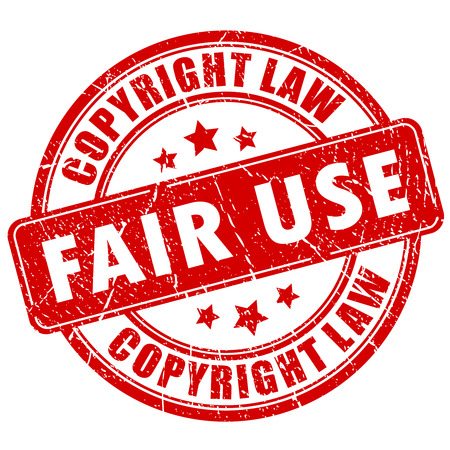Two certainties in the life of a writer. Deadlines and taxes.
You know what a deadline is. It has the word “dead” in it for a reason. In addition to the reality of taxes, the April 15 income tax filing deadline for those living in the United States is intrinsic to the reality. (And since today is April 15, I thought it appropriate to revisit some key bits of information.)
What about those taxes?
First, is the obligatory disclaimer. I am not a tax attorney or a tax accountant. I am merely discussing concepts and ideas that you may or may not use in your situation. And, as always, when it comes to your taxes, make sure you follow the rules of your country, province, or state. And, if appropriate, consult a professional.
Some of you may roll your eyes and say, “I already know this.” But remember, there was a time when you did not. I get many beginner questions each year from debut authors discovering the industry’s business side for the first time.
Keep Good Records
One advantage of the self-employed writer is the ability to deduct certain expenses related to the writing profession. Writers-conference fees, purchasing books on writing, website hosting fees, promotional items used to market your book, etc. These are possible deductions, but you must have a record of each expense.
And I mean keep everything: receipts, ticket stubs, bank statements, check registers, ATM receipts, mileage (when and where and how far). Nowadays, some people use the camera on their phone to record the receipt. The problem is later organizing the information in one place. If you have good recommendations, post them in the comments below. (The Tax Act provides an article with ideas here.)
Now is the time to start trying to collect your 2024 expense receipts if you haven’t already begun. Trying to find that receipt next year might be a challenge. An empty shoe box may seem convenient at the time, but it creates a lot of work later.
Hobby-Loss Rules
If you are writing as a hobby or for something that only occasionally earns money, then you can only deduct expenses equal to the amount of your revenue. In other words, you can’t buy a submarine and claim it was for research for that underwater thriller you’ve been trying to write for years.
But if you intend to derive a living from your writing, you can show a loss (and maybe deduct that submarine!?). Proving intent is something judged case by case. If you show a loss in your writing business for five consecutive years, expect a red flag to appear in the IRS inbox. It is commonly understood that the IRS will accept that you are running a business if your writing work shows a profit in at least three of the last five tax years. But in an audit, the IRS can go back many years and determine if your deductions were valid. If disapproved, you will end up with a new, very expensive tax liability and additional penalties. Read these excellent articles if your business is in danger of being classified as a hobby:
“When the IRS Classifies Your Business as a Hobby”
“What Every Self-Published Author Needs to Know About Taxes” (an excellent article every writer should read)
“Hobby Loss: What it is, How it Works, Avoiding it”
Separate Your Home from Your Business
As much as possible, keep your household income and expenses separate from your income and expenses for writing. This can be as simple as keeping a separate bank account. (This is one way to prove intent; see above.) Then, keep records separately for the business using Quicken, Mint.com, or a spreadsheet.
If you work out of your home, consider exploring the home office deduction. But be careful. If you write occasionally from your home computer and that computer is used by other family members for things other than your writing business, you will likely not qualify. If that room in the basement is your office but is also a playroom for kids or grandkids, it may not qualify. Home-office deduction rules can change from year to year. What worked for you last year may not this year. IRS Publication 587 (this 34-page document linked here) spells out the 2023 rules for those of you in the United States. Also, the IRS Form 8829 “Expenses for Business Use of Your Home” can be found at this link.
Resources
A good book is New Tax Guide for Writers, Artists, Performers and Other Creative People (Fifth Edition: 2016) by Peter Jason Riley. This is one of the few designed specifically for those in the arts.
Another good one is Legal Roadmap for Your Creative Business: A Strategy to Protect Your Assets Without Legal Confusion (2022) by Kiffanie Stahle. A little more up-to-date than the above. And covers all sorts of creative professions.
Another is the “Tax and Business Guide for Authors” course at The Christian Writers Institute. Currently it’s priced at $99 for the multi-session course by a tax professional. Be sure to join the Institute (it’s free) and see if there is a price reduction or a sale, or an updated version of the course. However, $99 is a good investment if it saves you as much or more in the coming year.
For many of you, numbers are either a toxic topic or the equivalent of hieroglyphics. But take this issue seriously. The writing profession is ultimately a business. Granted a business based in the creative arts, but it is still a business. Talk to a qualified tax accountant if you have questions. Never rely on the hearsay of another writer who gives anecdotal information at a writers conference. The IRS won’t accept the excuse that “Shirley told me it was okay to write off my Australian cruise because I was researching an article about Sydney!”
[This is a revised and updated version of a previously published post.]










